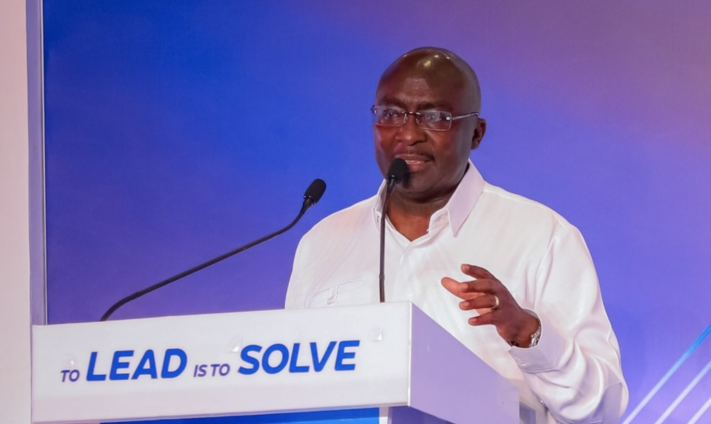Ghana, since its pre-independence days, has been globally renowned for its richness in the precious mineral, gold.
The country was once known as the Gold Coast before it was renamed Ghana — a clear reflection of how rich this land was, and still is, in gold.
For decades, however, the conversation around Ghana’s gold largely focused on mining and exporting — a cycle which has long been one of the nation’s biggest sources of foreign exchange.
But with global economic dynamics disrupted by unprecedented crises, nations began to think outside the box in response to depreciating local currencies and the rising cost of living.
In Ghana, a 21st-century leader — then Vice-President of the Republic — proposed an innovative policy in 2022 that would change Ghana’s perspective on its precious mineral forever.
First, Dr. Mahamudu Bawumia proposed the Bank of Ghana’s Gold Purchasing Programme, aimed at significantly increasing Ghana’s paltry 8-tonne gold reserves — a programme that laid the foundation for his second impactful proposal: the Gold for Oil initiative.
In the midst of the global economic crisis and the sharp depreciation of local currencies in 2022, Ghana’s Cedi came under severe pressure, as the demand for foreign currency to import goods escalated.
Dr. Bawumia identified the demand for foreign exchange to finance oil imports as a major source of the Cedi’s depreciation. To address the persistent currency depreciation, the rising demand for forex to import oil, and the associated increases in fuel and utility prices, he proposed the Gold for Oil Programme.
Under this programme, Ghana no longer needed to seek foreign currency to pay for oil imports. Instead, gold purchased by the Bank of Ghana was used to settle the cost of oil directly.
As envisioned by Dr. Bawumia, this significantly reduced pressure on the Cedi, curbed its rapid decline, and helped to stabilise fuel prices.
These two remarkable interventions by Dr. Bawumia not only addressed the longstanding challenges of currency depreciation and fuel price volatility, but also fundamentally changed the national conversation around gold.
The truth is, before 2022, no policymaker in Ghana had proposed a gold purchasing initiative to increase reserves, a Gold for Oil Programme, or the use of gold as a tool for currency stabilisation. Today, the NDC government has introduced the Goldbod — building upon the foundational ideas first proposed by Dr. Bawumia.
The question, then, is: after over 65 years of independence, why did Ghanaians suddenly begin focusing on gold as a strategic economic asset?
The answer is simple: it was Dr. Mahamudu Bawumia — the former Vice-President — who awakened Ghana to the critical role gold can play in building reserves and stabilising the exchange rate.
If today’s economic discourse prominently features the role of gold in national development, it is because of Dr. Bawumia’s defining and forward-thinking policy proposals. He deserves commendation for reshaping how Ghana views and uses one of its most valuable natural resources.
In the video below from 2022, Dr. Bawumia explains his thinking on how Ghana can use gold to support the economy.
Latest Stories
-
Harvard agrees to relinquish early photos of enslaved people, ending a legal battle
11 minutes -
Free Zones Authority gets new board, Trade Minister chairs
12 minutes -
NRSA to sue MMDAs for unlawful siting of billboards
18 minutes -
Government to train MMDAs to use data for planning
19 minutes -
Effutu NDC sympathizers protest Mahama’s new MCE nominee
20 minutes -
BoG urges deep structural reforms for economic reset
28 minutes -
Ghana-Germany trade hits €180.9m in first quarter of 2025
28 minutes -
Police arrest 26 suspects in drug operation at Aflao
31 minutes -
Police arrest 10 cybercrime suspects
34 minutes -
Government allocates GH¢22m for the rehabilitation of forts and castles
37 minutes -
Professor Akua Opokua Britwum is chair of National Media Commission
49 minutes -
IDEG empowers citizens on constitutional review process
49 minutes -
Venture Capital Trust Fund to drive SME financing under 24-Hour Economy Policy – Mahama
50 minutes -
Education Minister signs partnership agreement to strengthen education
51 minutes -
Presidential Spokesman salutes peacekeepers on International Day of UN Peacekeepers
59 minutes

